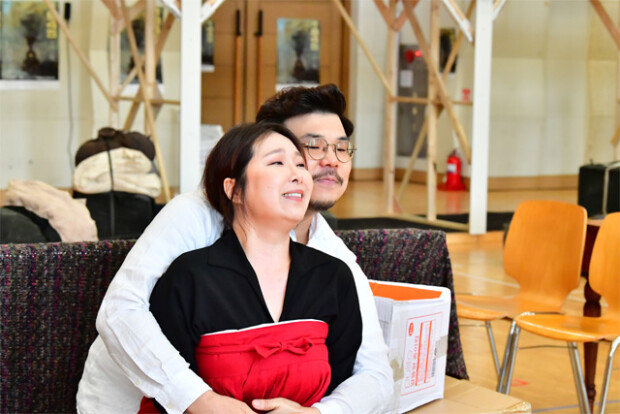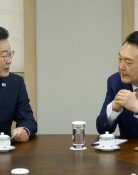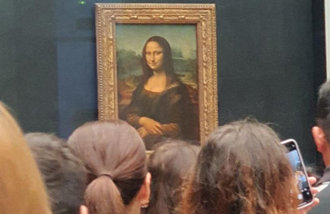The chaos following the liberation of Korea turns into an opera
The chaos following the liberation of Korea turns into an opera
Posted September. 18, 2019 09:45,
Updated September. 18, 2019 09:45

A Korean play titled “1945” written by Bae Sam-sik transforms into an opera, which will be played by the National Opera of Korea at 7:30 p.m. on Sept. 27 and at 4 p.m. on Sept. 28 in the Opera Theater of the Seoul Arts Center. Previously, the original play was performed by the National Drama Company of Korea and well-received by the audiences in 2017. Director Ko Sun-woong, who is known for having the Midas touch in the theatrical world, makes a debut as an opera director. Professor Choi Woo-jung at Seoul National University takes charge of composing music in the opera.
A visit was made to a practice unit for national arts organizations at the Seoul Arts Center on Tuesday. Then, the venue was full of the sound of a duet song sung by Won-chang and his wife Soon-nam. The scene describes him working to open a Korean language class for war refugees, who return to Joseon from Manchuria, and his wife worrying about their livelihood.
The backdrop to the opera is a war refugee center where Korean people stay and wait for a train to their home country after its liberation. Booni, a Korean comfort woman, disguises Mizuko, a Japanese comfort woman, as her younger sister with lingual disabilities. As she is caught lying soon, it only adds more tension to the opera. A various group of people are portrayed in the opera including the pale-faced intellect Won-chang, his wife Soon-nam with a realistic viewpoint, and Mak-nan and Sub-sub blinded by love.
The opera sound resonated throughout the practicing room by unfolding its multiple layers of music, each of which has been piled up in the minds of Korean audiences. The opera contains various musical styles including: a two-beat Changga, which affected military songs of the Japanese forces and the Independence Army after it was introduced to the Korean Empire; an Enka note of a pentatonic scale with an exotic feeling; a chord of late-romanticism that accompanies agonizing arias; and an atonalism technic that fills in horror scenes. Professor Choi, in charge of composing music, said that he added musical elements that are familiar to Koreans so that people of today can relate to the opera.
The opera does not include any dichotomic message of good-natured Korean victims and evil Japanese aggressors. Each major role shows their own weaknesses and humane qualities. Playwriter Bae Sam-sik has joined dramatizing the opera script. He said, “I intend to say that it is imperfect to tell what’s wrong and what’s right from a moral perspective and it can turn into violence.” He kept reminded of merciful sadness, which is thus “mercy,” when he wrote the script, he added.
gustav@donga.com







